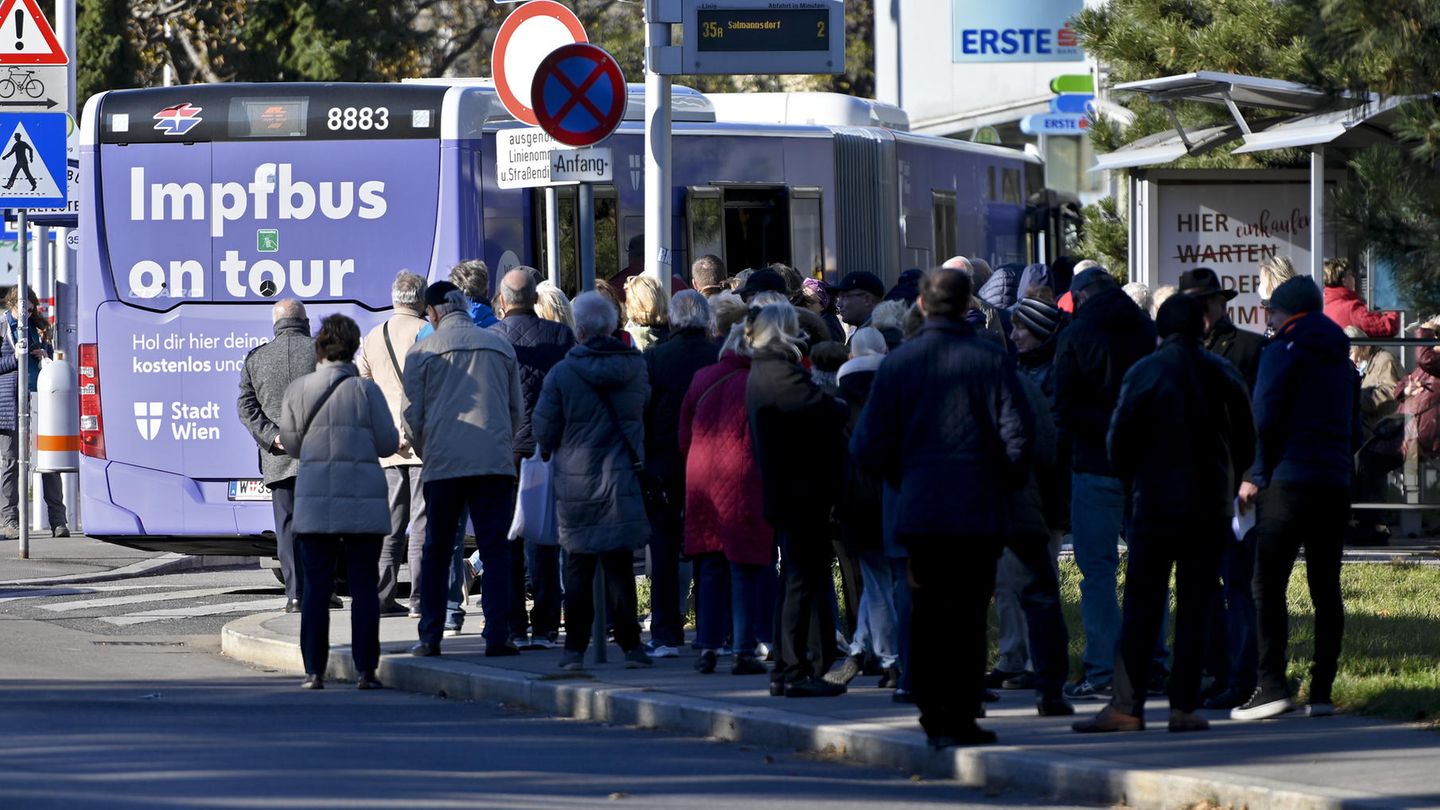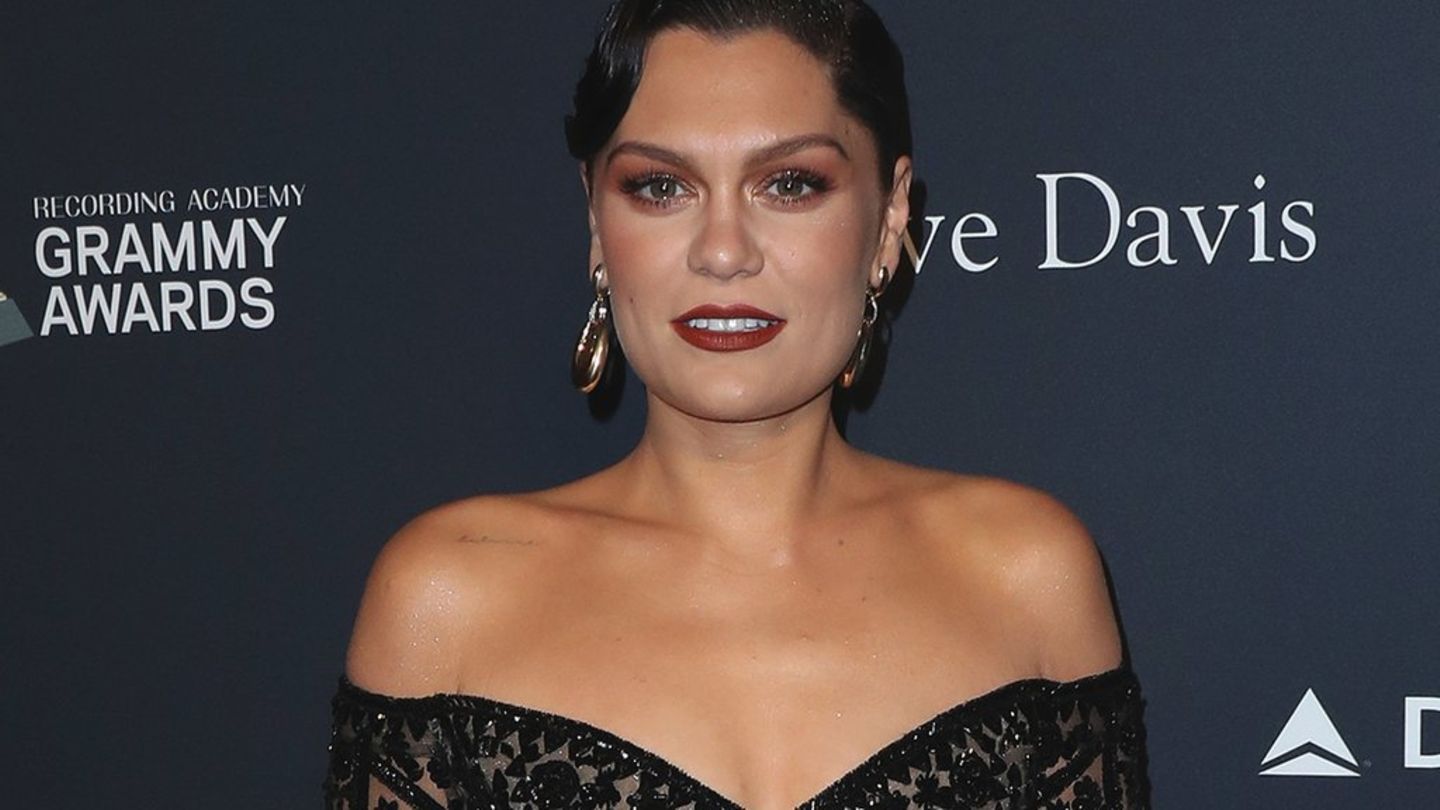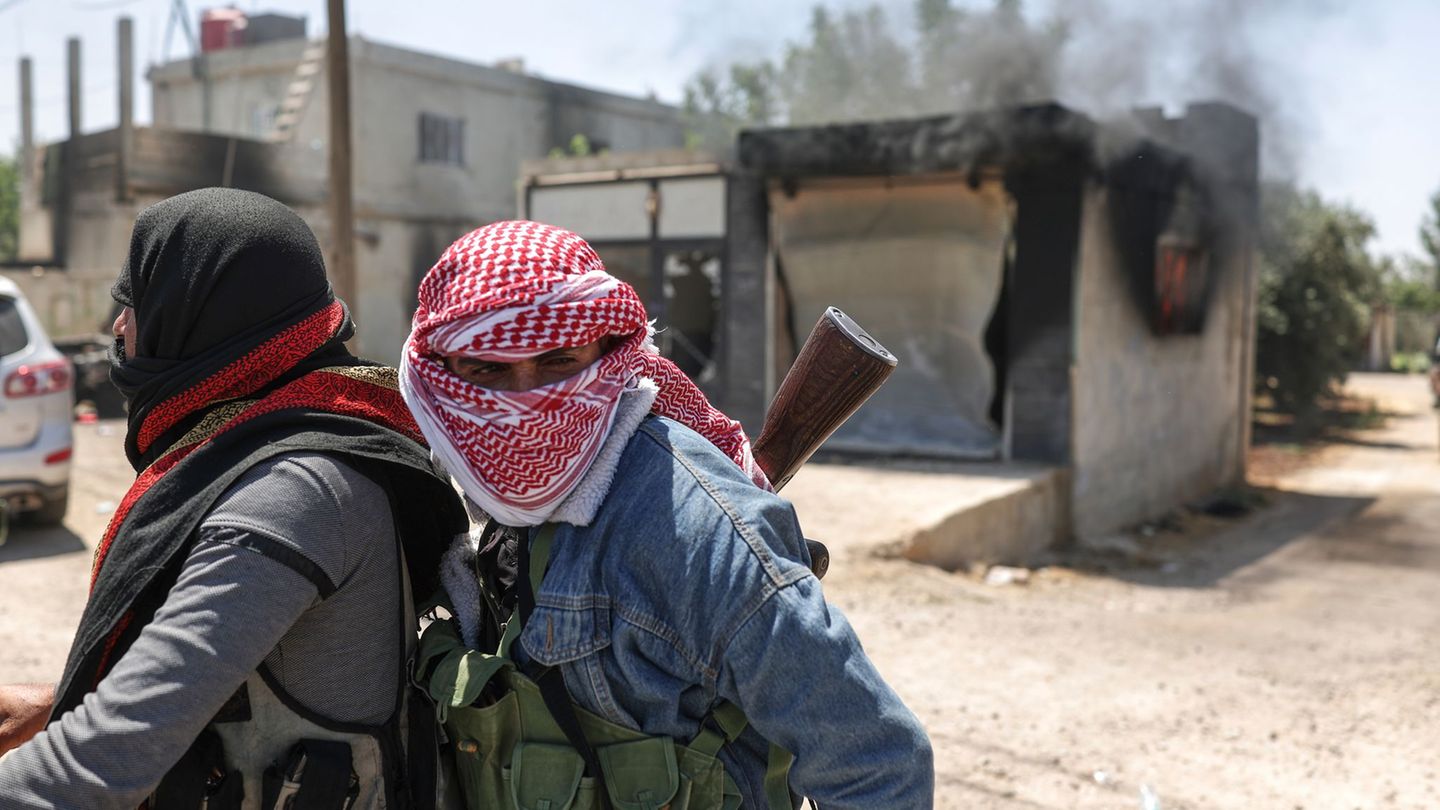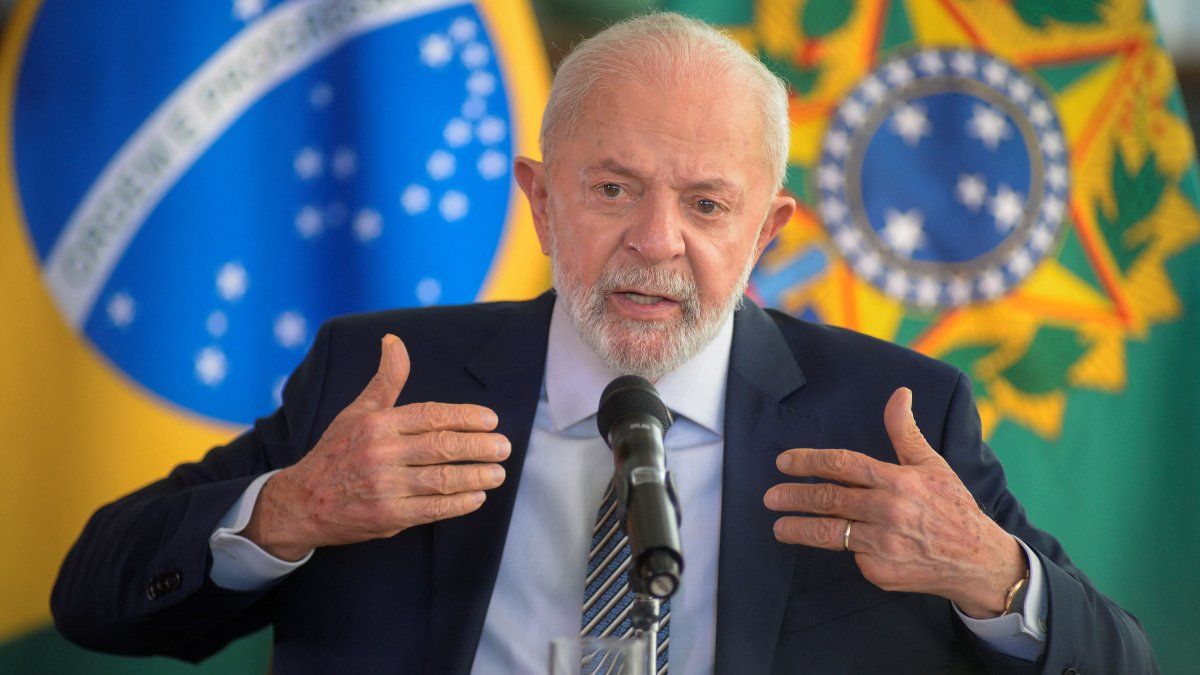In Austria, the 2G regulation comes into force on Monday. The “Schnitzel Lockdown” is already causing queues in front of the vaccination centers. It could still be critical for the ski business.
The new 2G rule in Austria is apparently already having an effect: As the government had hoped, many people got their first trick at the weekend, so to speak, at the last minute. Because according to a decision by the government announced at short notice, from Monday only those vaccinated against Covid-19 and those who have recovered from it will be allowed in bars, hotels, events and hairdressing salons.
In view of the exponentially increasing corona infections and the filling intensive care units, Chancellor Alexander Schallenberg (ÖVP) does not assume that these restrictions for unvaccinated people can be lifted within six weeks. “It will probably be a 2-G Christmas,” said the new conservative head of government of the “Kronen Zeitung” (Sunday). “Most likely” the rule will still be in force on New Year’s Eve, added Vice Chancellor Werner Kogler (Greens) in a joint interview.
The government’s announcement on Friday evening was not followed by mass demonstrations, but by queues at vaccination centers across the country. On Saturday alone, the Ministry of Health reported almost 32,000 vaccinations, which climbed the weekly statistics to 213,000 – the last time there were weekly doses in early August. However, the first vaccinations made up only a third of the bites on Saturday.
Austria: Gastronom expects ten percent fewer guests
The pressure on unvaccinated people and the vaccination numbers have increased in the last few days not only because of the upcoming 2G rule: since the beginning of November, workers who have not been vaccinated or who have recovered have to bring a test certificate several times a week in their companies (3G rule). Also, many people are getting their third dose these days.
In any case, the Viennese free newspaper “Heute” defined the 2G rule on its title page as a “schnitzel lockdown”. In the Leopoldauerhof, a Viennese inn near the city limits, you see the measure pragmatically: “You have to accept that,” said managing director Alen Vinca of the German press agency and referred to the high Corona numbers.
Vinca expects, however, that ten percent of the guests will be absent due to a lack of vaccination certificate. He also fears that company Christmas parties will be canceled. The hospitality industry and tourism showed overall understanding: The government had no other choice because of the contagion dynamics, said Robert Seeber, who represents the division in the Chamber of Commerce. “In addition, the responsible handling of the infection rate is an important signal to our markets of origin, especially to Germany”. Everything must now be done to prevent travel warnings during the ski season.
“I’m for it, but it’s too late,” says Herbert, a guest at the Leopoldauerhof, about 2G. In July, the previous Chancellor Sebastian Kurz (ÖVP) announced: “For everyone who is vaccinated, the pandemic is over”. There were no large-scale advertising campaigns for primary vaccinations on the part of the government over the summer months.
Ski business in danger?
After the significant failures in the past ski season, holidaymakers and ski regions are now relying on the new winter sports season – with requirements and different challenges for tourism planners. According to the Austrian Chamber of Commerce, possible travel warnings hang like a sword of Damocles over the hotel and restaurant industry due to the currently high corona numbers. On top of that, around 8,000 to 10,000 seasonal workers would be sought in the next few weeks, said the hotel industry spokeswoman for the chamber, Susanne Kraus-Winkler, of the dpa: “We have an employee market almost worldwide, so that the workers choose their positions very carefully.” Some hotels would have assigned several employees just to look for additional employees.
Another big problem is that up to 3,000 workers have been vaccinated with the Russian vaccine Sputnik V, which is not recognized in Austria because it is not approved. “We have been urging the federal government to take action here and, for example, to allow cross-vaccinations with other substances as proof of vaccination,” said Kraus-Winkler. There is also a problem with guests from Eastern Europe.
Many hotels in Austria have been tending towards a 2G rule for vaccinated people and those recovered from Corona for a long time, as it will now apply from Monday. Better a safe season than no season at all is the motto, says Kraus-Winkler. After the failure of the 2020/2021 winter season, the consequences of which were partially cushioned by aid payments, many in the industry could no longer afford a second failed winter. “That goes to the reserves,” said Kraus-Winkler. In the winter season, a lot is at stake for Austria, which is heavily dependent on tourism: “Confidence in the winter season product must not be shaken.”
Highs for new infections, lows for vaccinations
In Austria, almost 65 percent of the population is fully vaccinated – one of the lowest values in Western Europe. On Saturday the number of daily new corona infections reached a record value of 9,943, on Sunday it was 8,554. The seven-day incidence in Austria was most recently around 570.
Health Minister Wolfgang Mückstein (Greens) was realistic to the “Kleine Zeitung” on Sunday: around fifteen percent of people are absolutely against a vaccination, eight percent could still be convinced. Now it is not only necessary to vaccinate, but also to consistently implement the 2G rule, he demanded, alluding to the weak control of the previous 3G rule in bars in many places. “If things go on with a wink in some places with a wink, it won’t work,” he said.
Source From: Stern
David William is a talented author who has made a name for himself in the world of writing. He is a professional author who writes on a wide range of topics, from general interest to opinion news. David is currently working as a writer at 24 hours worlds where he brings his unique perspective and in-depth research to his articles, making them both informative and engaging.




